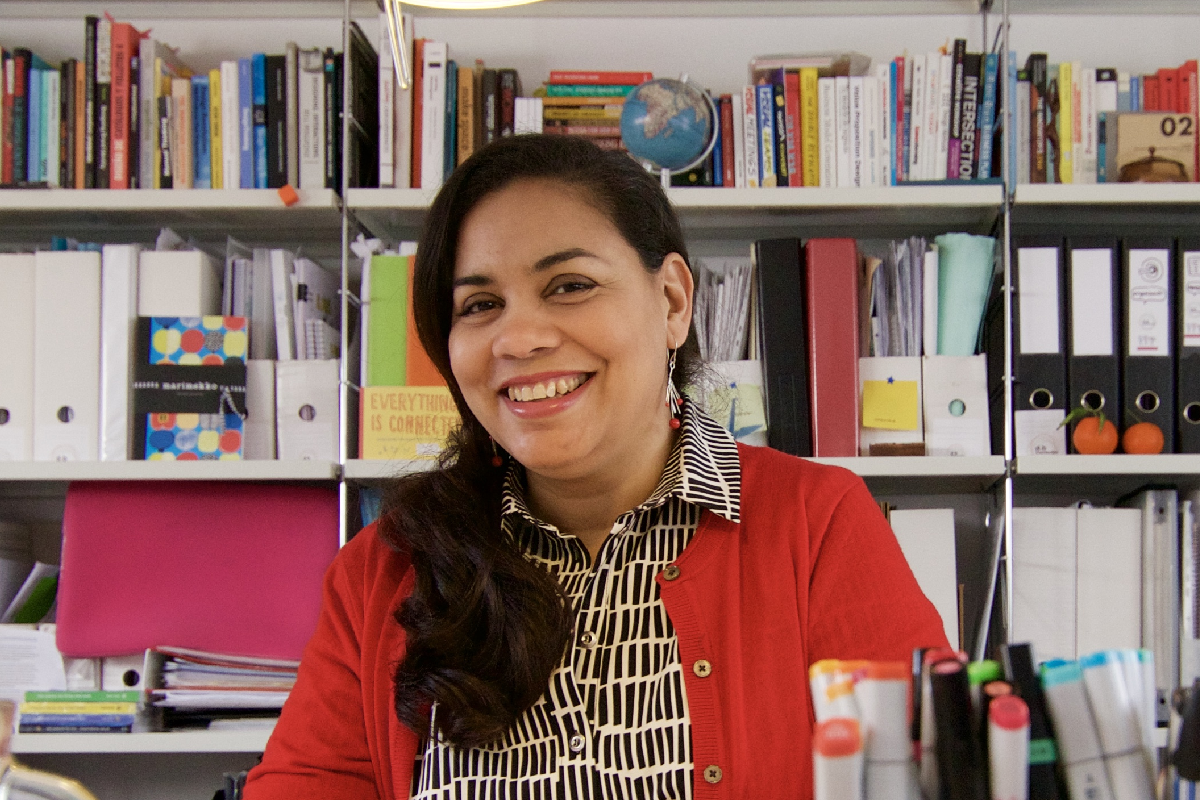Alexandra Etel Rodríguez: “Barcelona should be vibrant”

Alexandra Etel Rodriguez is 50 years old and married. Born in Costa Rica, she lived in Belgrade and Panama before moving to Barcelona 20 years ago. She is the founder and innovation architect of Design + Business Intersection, a boutique strategic consultancy that applies design and management expertise to urban, entrepreneurial, and social innovation.
Why did you choose Barcelona?
In 1996, I took part in the 19th Congress of the International Union of Architecture (UIA) in Barcelona. I enjoyed discovering the modernista architecture of the Eixample and more contemporary styles. I also loved the gastronomy, the sea and the Mediterranean climate. I simply fell in love with the city. I knew then that I wanted to live in a city like Barcelona. The dream came true four years later, in 2000, when I got married and came to Barcelona to do an MBA.
What do you like most about the city?
I like its strategic location by the sea, which means that it is well-connected to the rest of the world. And I appreciate its light, architecture, and design. I like the grid system of the Eixample, which is organized, egalitarian, and makes it easy to walk from one end of the city to the other. The Gothic quarter is also magical because it transports you to another era. It is a beautiful city, well organized, and full of contrasts.
What aspects of the city need to be improved? How?
First of all, we should value all the work that has been done over time to create a city like Barcelona. In recent times, it has developed a reputation as a photogenic theme park and I feel that it has lost its luster; people have sadly lost their respect and love for what had been built with so much effort. Working groups that represent all social and economic interest groups should be set up to tackle the city’s challenges. And rather than just talking, there need to be specific initiatives to solve current problems. Starting with education in schools, universities and awareness-raising for the general public, we need to “learn by doing” and to “show, not just tell”.
What do you think will help the city get over the Covid crisis?
Its privileged location by the sea means that Barcelona is physically open to the world. It is a benchmark for urban design and has a rich architectural and cultural heritage that makes it a leader in many fields. We must take action and get to work now in order to rekindle the creativity that makes it unique.
What challenges do you think the city will face once the Covid crisis dies down?
The city will need to help people to maintain their physical and mental well-being and get over the emotional and physical exhaustion caused by the pandemic. Barcelona needs to tackle gender and social inequalities, and overcome political differences that make it difficult to carry out projects of interest for all. New forms of work and an ecosystem with well-paid job opportunities are also essential, and more affordable housing needs to be promoted. And principally, it will be essential to revive people’s love and respect for the city: its streets, green areas, buildings, and infrastructure. We need to create a friendly, positive, beautiful environment for everyone that radiates positive energy.
What do you expect from Barcelona in the coming years?
I would like it to be a city that is full of light, magic, and prosperity, a city that is vibrant, inspiring, sustainable, energy efficient, and very green. I hope that it will overflow with creativity, innovation, and entrepreneurship, and that it will ensure the safety and wellbeing of all, while encouraging its inhabitants to grow. And of course, Barcelona should be a world benchmark for good practices and position itself as one of the best cities in which to live, study, and work.
Where do you feel most at home? What do you miss the most?
Barcelona is undoubtedly home to me now because I have spent the last 21 years here. What I miss from San Jose and Panama are the evident joy of the people, the beauty of nature, and the region’s exuberant biodiversity. And the things I miss most from Belgrade are the opportunity to speak a Slavic language, and the art, music, and mathematics that are instilled in children at a very early age.
If you want to know the latest English news about Barcelona and the people who bring it to life, sign up to our Blog.








